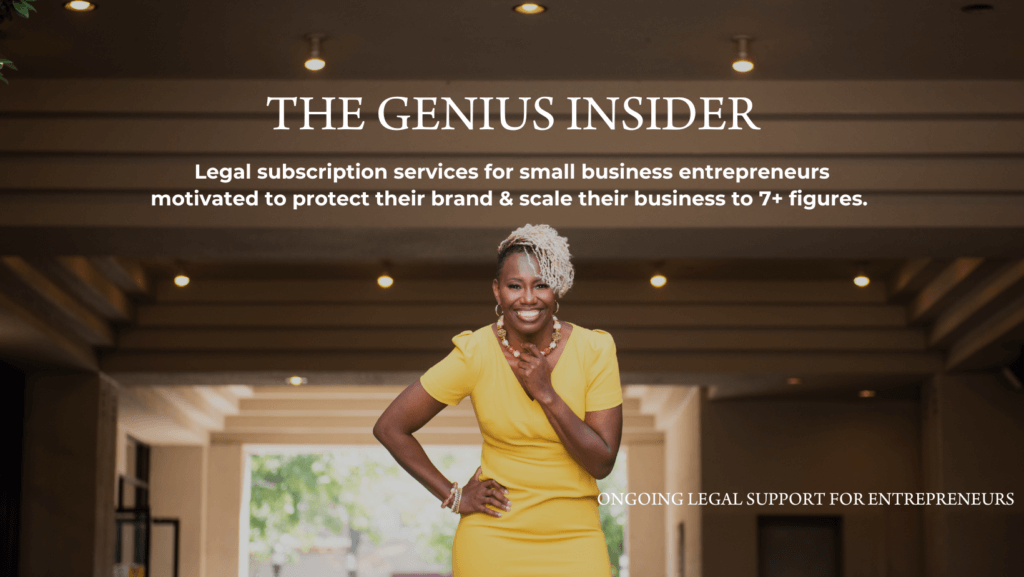It’s a series! What better way to kick off the month of May than by tackling one of the top five questions we get on a regular basis. Which business entity should you choose for your business. The best entity is relative to your needs so it will vary not only person to person but sometimes from stage to stage of your business.
Listen and learn as Attorney Murray begins part one of our four-part series on the pros and cons of the four main business formations. Today’s episode takes the mystery out of sole proprietorship, so stay tuned.
Listen on Apple Podcast, Spotify, Google Podcast, or Stitcher.
Today's episode covers:
- What a business is
- The difference between a business and a hobby
- The pros and cons of operating as a sole proprietor
Resources and links mentioned in this episode:
- Join the Genius Insider
- Leave a Review on Apple Here
- Schedule a Consultation With Attorney LaConya Murray
About the Own Your Genius Podcast
The Own Your Genius podcast is the perfect mix of business, law, and mindset to help black entrepreneurs succeed in business and life.
Join Attorney LaConya Murray each month as she and guest share their entrepreneurial journey, tricks of the trade, and their secrets to getting out of their own way to succeed.
Inspired by her grandmother, the community bootlegger Attorney Murray‘s passion for helping entrepreneurs started early. Today she helps entrepreneurs throughout the country protect their brand, content, and ideas through trademarks, copyrights, and business development.
Until next week, keep building your business, growing your brand, and owning your genius!
Episode Transcript
It’s my birthday month, I’ll be 44 in a few weeks, and I thought what better way to bring in 44 than with something new? We haven’t done a series before, so I decided that I wanted to do one, and I was like, what should we do? What should we talk about? What would be a good topic that people would wanna tune in for week after week? And then I was like, ah, I know. We’re gonna talk about the different business formations, because I’m gonna tell you that I get that question a lot. I know it’s a good topic because I am constantly asked what business entity is the best and which ones should someone choose. And the answer is always the same. Best is relative to what you want to accomplish, so it really depends. So over the next few weeks in May, we are going to take a business entity and we’re going to talk about the pros and cons of each one. You ready? Here we go.
Welcome to episode 118 of the Own Your Genius Podcast. I’m so excited that we’re starting this series this month, my birthday month, when I turn 44. I love May, I love the temperature, it’s just right. It’s like not too hot, not too cold. The sun is shining and it really is when I operate in my best. Anywho, you’re not here to talk about me. We’re here to talk about a business formation. And the one that we’re gonna start with is sole proprietorship. And so, today, we’re going to answer the following questions:
What a sole proprietor is?
How do you form a sole proprietorship?
What are the benefits of operating as a sole proprietor, and
What are some of the consequences for operating as a sole proprietor?








Responses